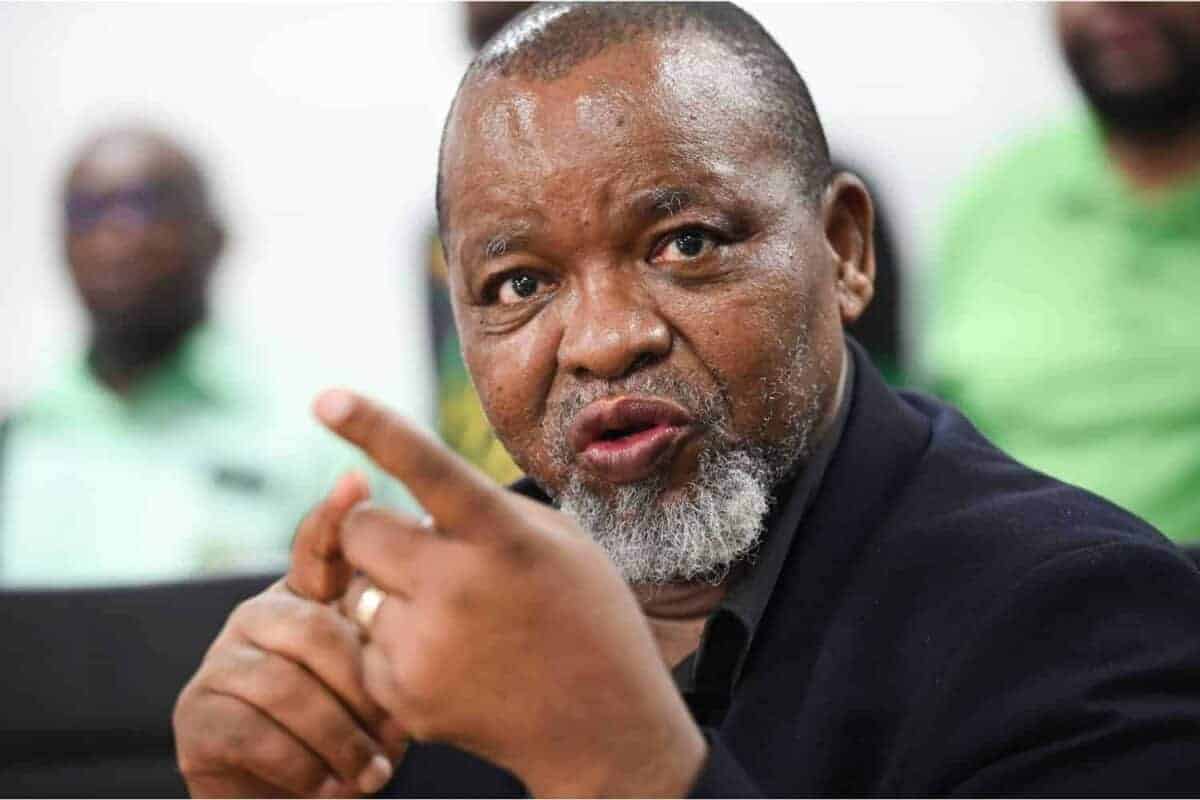Mantashe says South Africa’s fuel imports come mostly from Asia and the Middle East, shielding it from the effects of US tariffs.

Minister of Mineral and Petroleum Resources Gwede Mantashe says the trade tariffs imposed by the US will not affect South Africa’s fuel security.
Addressing MPs during the National Council of Provinces question-and-answer session with select ministers in the economic cluster on Thursday, Mantashe said one of the reasons is that South Africa does not export any fuel to the US.
Diversified import sources shield SA
Another reason is that liquefied petroleum gas imported from the US will not attract any tariffs.
“And then South Africa imports its fuel imports mainly from countries like India, Italy, Oman, Qatar and Bahrain,” Mantashe said.
“Therefore, the security of fuel supply remains unaffected.”
Regarding the tariffs’ impact on fuel prices, the minister said domestic prices are influenced by factors such as the price of crude oil, refined petrol product prices and the rand/US dollar exchange.
These factors are taken into account when calculating the fuel price, Mantashe told MPs.
ALSO READ: SA trade delegation in the US remains hopeful – Tau
“While fluctuation in global markets and currency movements can impact on fuel prices, US tariffs have not had a direct influence on South African fuel pricing to date.
“What will happen in the future, I don’t know.”
No special plans to counter tariff effects
Mantashe revealed that as a result of the lack of direct influence, the department currently does not have specific strategies and plans in place to mitigate the impact.
He added that the country’s diversified sourcing of fuel from various international suppliers “provides sufficient resilience against potential disruption” linked to US President Donald Trump’s tariffs.
Trump imposed a 30% tariff hike on South African exports to the US, which took effect in August.
Many other countries suffered the same fate, some with a higher increase than others.
Ramokgopa on the end load reduction
Also answering to the NCOP was Electricity and Energy Minister Dr Kgosientsho Ramokgopa.
ALSO READ: Load reduction is coming to an end, says minister
Quizzed about the projected ending of load reduction, Ramokgopa said while his department has set a timeframe of 2027, it is possible to end it sooner.
He said the load reduction elimination strategy that was announced in September includes installing smart meters in affected areas, which will enable real-time management of network demand.
It will also allow detection of energy theft and improved customer load balancing.
“We have galvanised the necessary technical expertise, both within Eskom and also our contractors. And then we’ve got sufficient supplies of meters, so we’ve got the capacity to resolve all of this thing in 12 months, before the end of next year,” Ramokgopa said.
But potential resistance from the communities is what makes 2027 more likely.
Ramokgopa said load reduction, which has been around for approximately three years, remains a “necessary, albeit temporary, measure to protect network infrastructure from catastrophic transformer failure in high-demand areas”.
NOW READ: Artificial diamonds threaten South Africa’s mining sector
Support Local Journalism
Add The Citizen as a Preferred Source on Google and follow us on Google News to see more of our trusted reporting in Google News and Top Stories.






